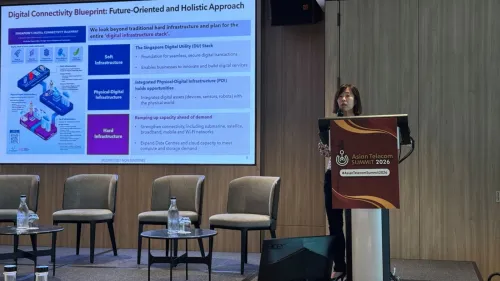Southeast Asian governments build youth trust through targeted policies
Accessible healthcare, housing, and job initiatives strengthen youth confidence.
Youth trust in Southeast Asian governments is on the rise, with around 49% of young people across six countries believing their leaders act in the public's best interest, according to a new survey by Vero Advocacy and Kadence International.
“Most of the youth—that’s Gen Z and millennials—are quite happy with the accessible healthcare, affordable housing, and some of the tax relief or incentives that their government has been providing,” said Nattabhorn Buamahakul, Managing Partner at Vero Advocacy. “I think these are the three, I would say, least concerning for governments that they have been doing quite well.”
Youth trust levels differ across Southeast Asia. Vietnam leads with 66% of young people confident in their government’s public interest focus, followed by Singapore at 56%. Meanwhile, Malaysia and the Philippines show lower trust levels, with 43% and 40%, respectively.
“Youth trust in the government is a vital factor for future leadership and social progress,” said Ashutosh Awasthi, Director at Kadence Singapore. “When you have a strong trust in the government, they work actively with them to tackle different socio-economic issues and also play a critical role in the progress of the country.”
Employment opportunities remain a top priority for youth across the region. Governments have responded by focusing on upskilling and entrepreneurship.
“In Singapore, SkillsFuture is a key upskilling initiative focused on lifelong learning and career adaptability,” said Awasthi. “It also offers support through SkillsFuture credits, which has access to diverse training courses and industry-aligned skill frameworks.” Such programs ensure better alignment with the evolving job market, fostering continuous learning and enhancing employability.
Another critical area is youth participation in policymaking. “Governments across Southeast Asia have recognized the importance of youth participation in policymaking and have successfully implemented a lot of initiatives to increase their involvement in economic activities,” Awasthi added.
Governments can leverage this growing trust to shape expectation-driven policies. In countries like Indonesia and the Philippines, where employment remains a pressing issue, youth-centric job creation strategies are essential to further build confidence.











